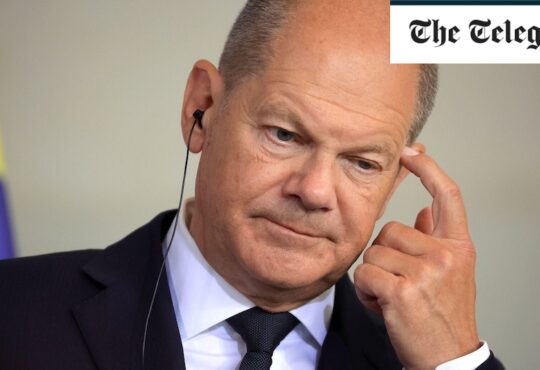German CSU warns against cohesion funds cuts ahead of Lindner visit, EU finance chiefs summit – Euractiv

Ahead of a discussion on the future of cohesion policy with German Finance Minister Christian Lindner (FDP/Renew) in Brussels on Monday (15 July), the centre-right Bavarian party CSU (EPP) has warned against centralising the funds – as considered by the European Commission – or cutting them – as wanted by Berlin.
The CSU’s warnings are well-timed, as the bloc’s finance ministers arrive in Brussels on Monday for two days of discussions around thorny budgetary issues—including lingering questions over the post-pandemic recovery funds and fiscal and economic policy coordination among the 27 member states.
Right after the first round of talks among euro-area ministers in the afternoon, Lindner will head to an event where the Commission’s chiefs for the bloc’s cohesion policy and for the budget—Elisa Ferreira and Johannes Hahn—will present a report on “the future of cohesion policy 2028-2034 from a fiscal policy perspective.”
The debate on the future of cohesion policy is heating up as current beneficiaries – including rich industrial regions such as Bavaria and Baden-Württemberg (which will host the event at its Brussels office) – fear losing funding amid widespread calls for reform.
“The signal, especially after the European elections, must be: We in the EU leave no one behind – no village, no city, no region,” Christian Doleschal, an MEP for Bavarian regional government party CSU (EPP), said in a statement on Friday (12 July).
“Against this background, I find it extremely worrying that the European Commission is apparently considering centralising cohesion policy and thus weakening the regional perspective,” he added.
Cohesion policy, which includes a fund for regional development, the European Social Fund (ESF) and more targeted support for the EU’s poorest regions, accounts for about one-third of the total EU budget, adding up to €392 billion in the current seven-year budget of 2021-2027.
The Commission’s plans to ‘centralise’ cohesion policy – i.e. reducing the involvement of regional governments, following the blueprint of the post-Covid Recovery and Resilience Facility (RRF) – has, in particular, sparked strong criticism from the EU’s Committee of the Regions (CoR), which represents local authorities.
CoR President Vasco Alves Cordeiro warned in an interview with Euractiv in June that such a move would “kill cohesion policy, and ultimately, […] the European project.”
Doleschal also warned against EU “funding cuts”, supported by Berlin, as some fear that policymakers could favour a shift in spending priorities for the next budget period – such as defence and competitiveness – to the detriment of the so-called ‘structural funds’ the bloc devolves to agricultural and cohesion policy.
While the same Commissioner Ferreira warned in June that any new EU spending priority should not cut into the cohesion budget, there has been increased support for re-assessing the efficiency of EU budget spending.
The same German Economy Minister Robert Habeck (Greens) warned earlier this month (3 July) that cohesion means will become “scarcer”.
Asked at a press conference whether cohesion funds should continue to be paid to rich regions like Bavaria, Habeck said, “When it comes to equalising living conditions, it makes sense to ask whether the funding is always spent wisely enough if living conditions are already equalised”.
Financial support should become “more accurate and more targeted,” he added.
Not supporting rich regions any more through the EU’s European Regional Development Fund (ERDF) and the European Social Fund (ESF) – the two biggest chunks under the cohesion policy umbrella – is one of the key recommendations of Berlin-based think-tank Jacques Delors Centre in a recent report on Cohesion policy.
[Edited by Anna Brunetti/Alice Taylor]





